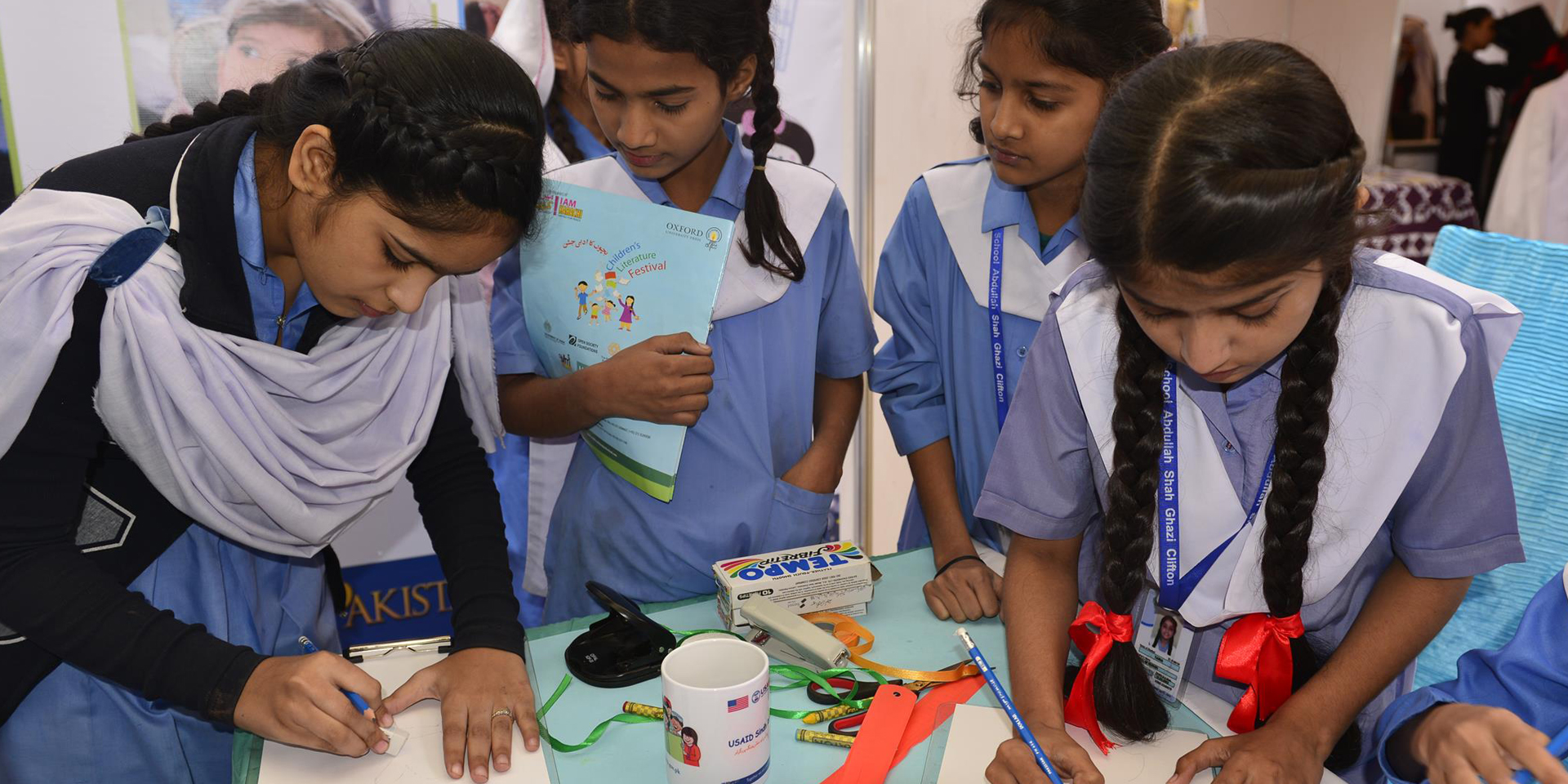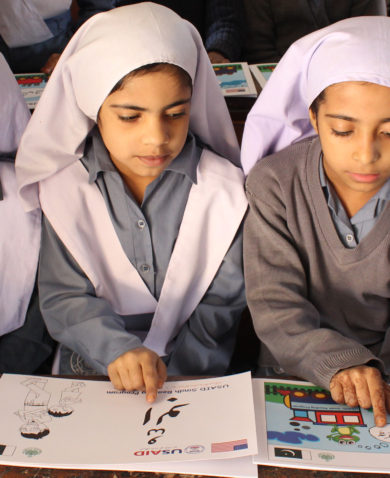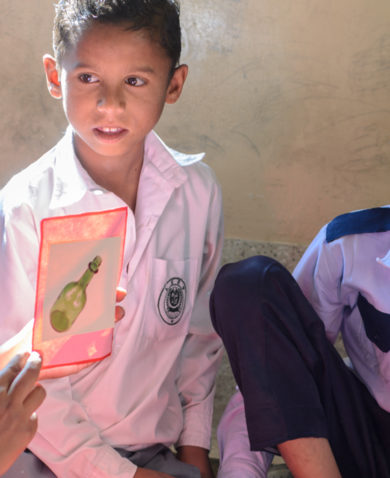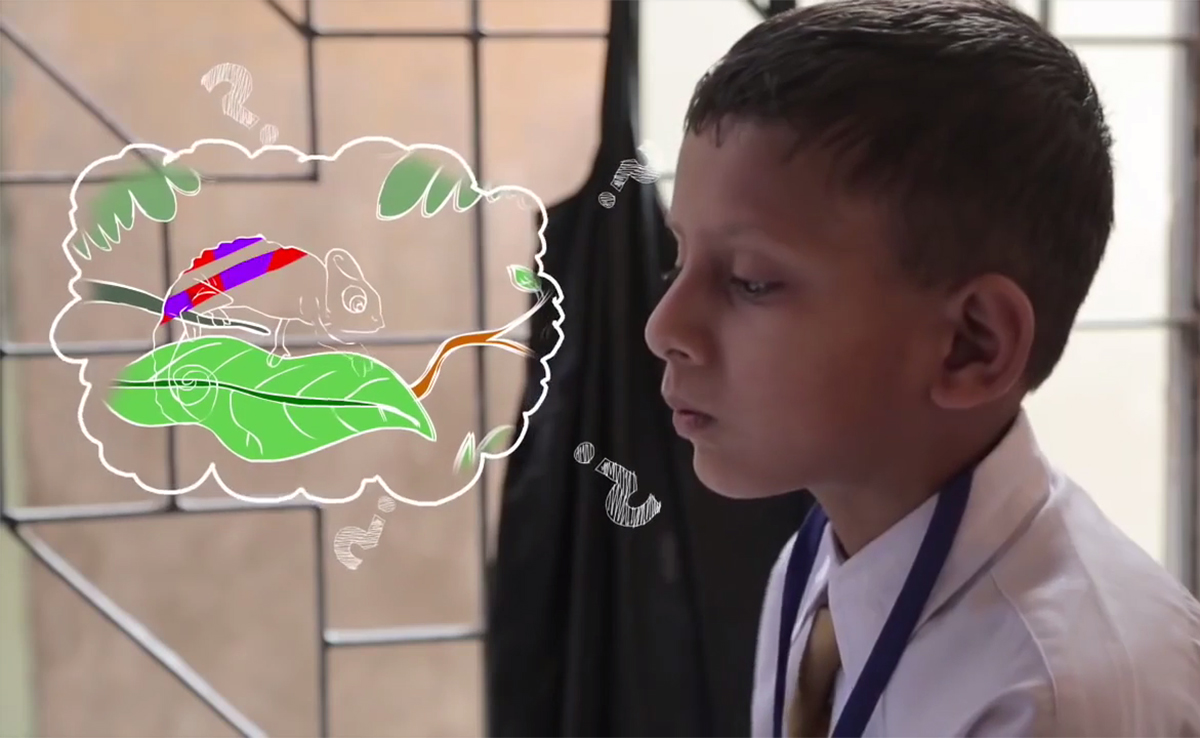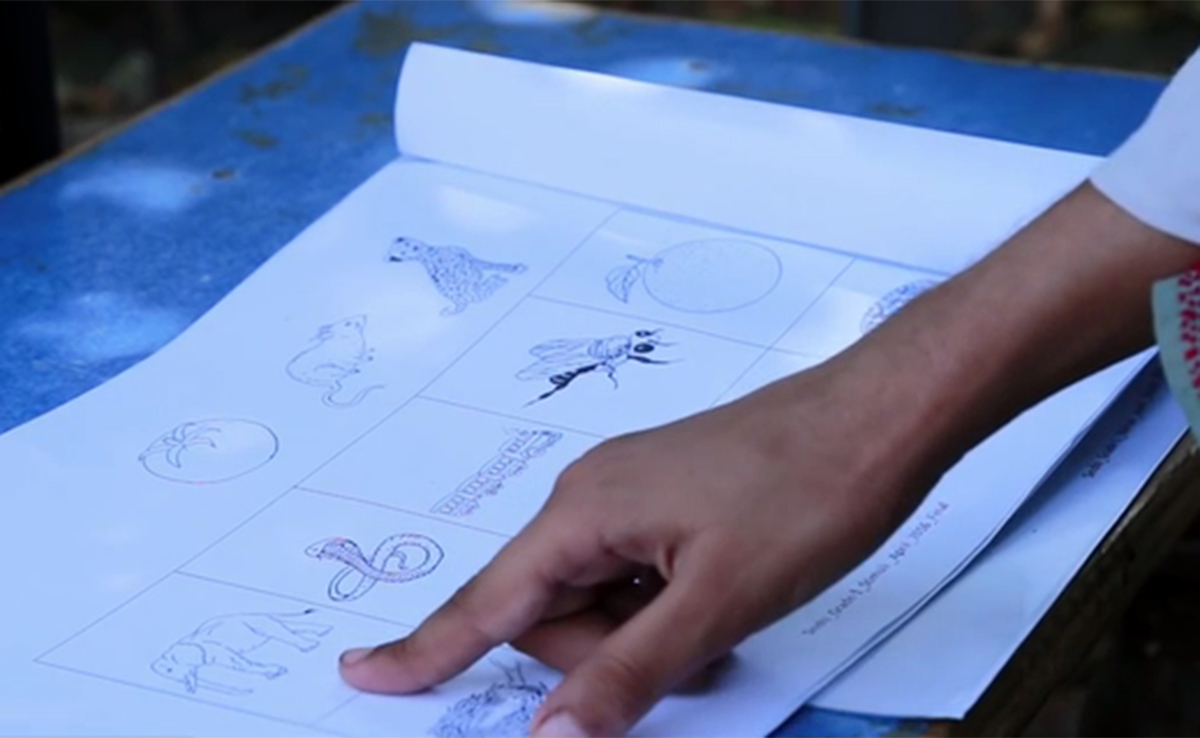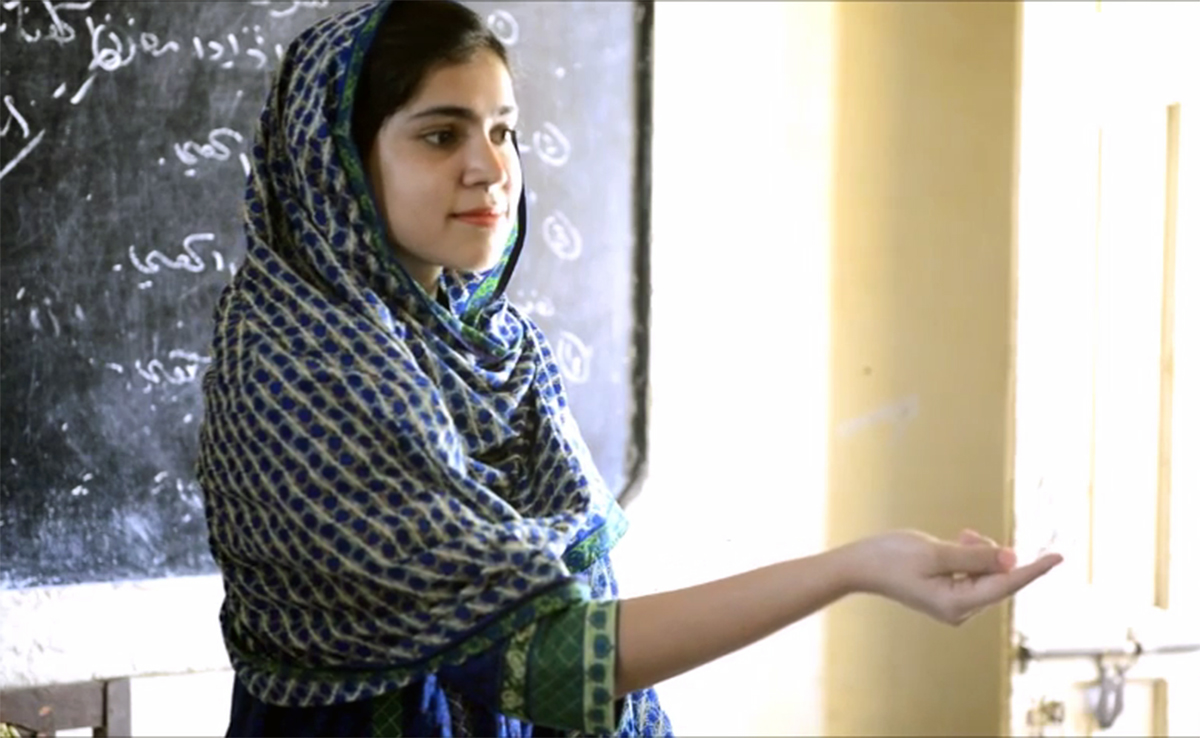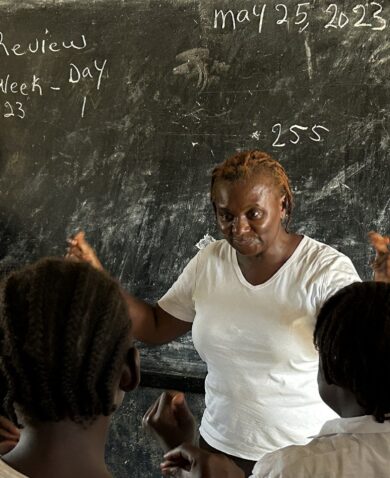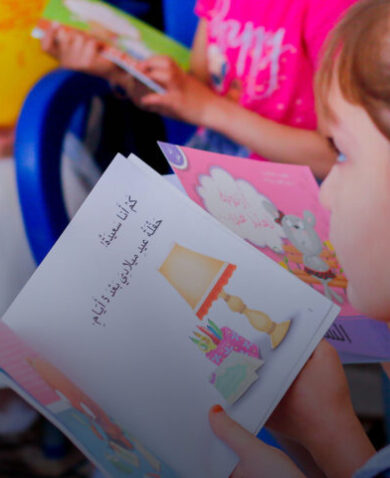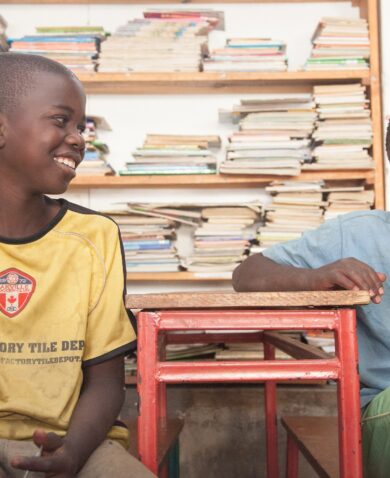Sindh Reading Program
One-third of the population above the age of 10 in Pakistan’s Sindh Province is illiterate, and about 30 percent of school-aged children do not currently have regular access to education. To address this gap in early-grade reading and numeracy, USAID’s Sindh Reading Program worked to improve the quality of and access to education in the province. Building on baseline reading assessments conducted in 2014, the project created a teacher professional development program that uses SMS technology as well as onsite teaching-and-learning associates to support teachers in the classroom. Other project efforts focused on developing age-appropriate reading materials in both Sindhi and Urdu that students can access in schools, in libraries, and at home.

